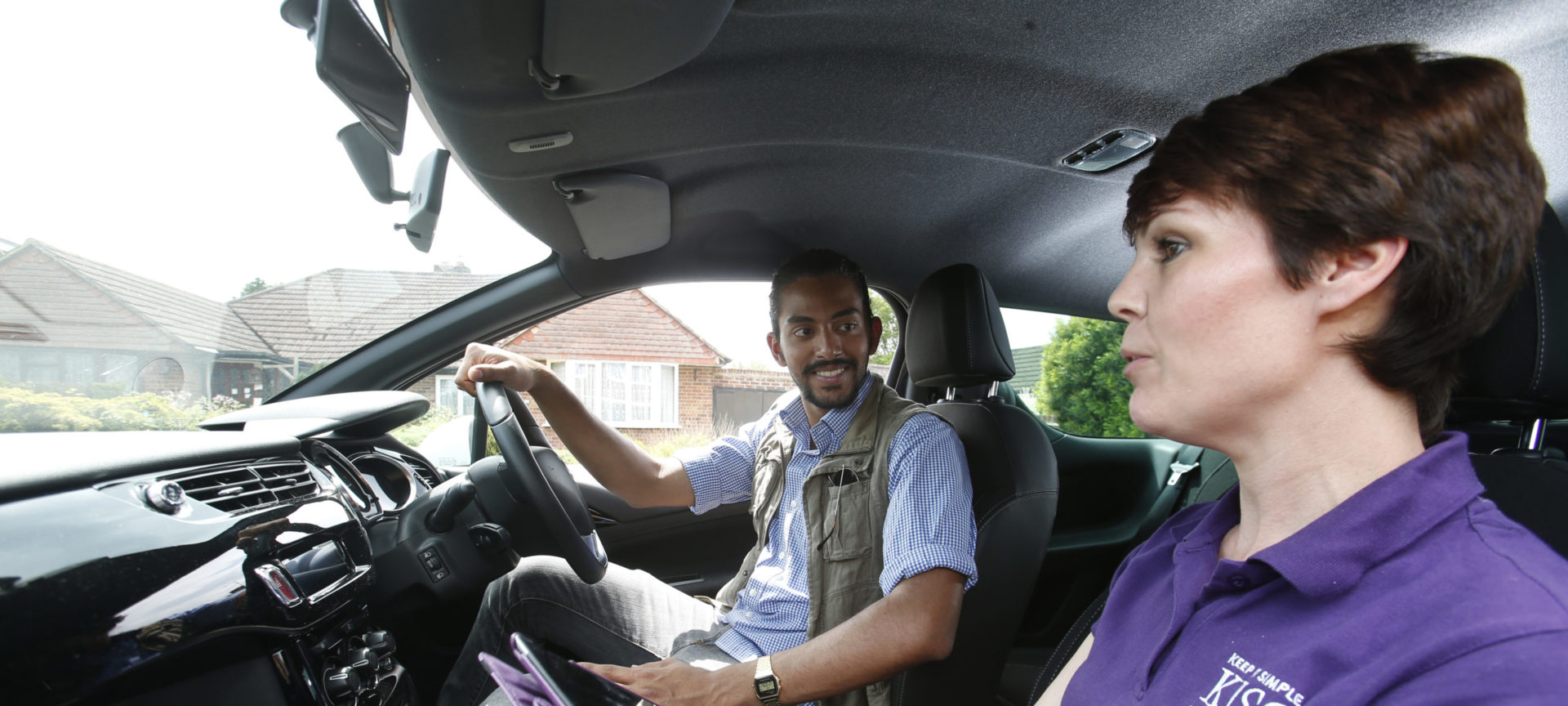So, you’ve found a driving instructor and you are about to get behind the wheel for the first time. Make every second count!
You’re probably excited. Possibly a bit anxious. Maybe both! Don’t worry, your instructor is a professional, most likely with years of experience having dealt with hundreds of first-time drivers and is used to guiding nervous first timers through the techniques needed to drive a car.
You’re paying a lot for an expert to teach you, so here’s are some tips to help get the biggest bang for your buck!
First things first
Don’t forget to have your provisional licence with you on your first lesson, your instructor will need to see this as it’s a legal requirement for you to get behind the wheel.
Rest up
Always try to get a good night’s rest before a lesson. A big night out with your mates before a morning lesson isn’t a good idea – you need to be fully alert and sober.
Fuel up
Eat and drink before the lesson to boost your energy levels and keep them high. Remember to go to the loo in advance of your lesson as there not many places to stop once you are driving and you don’t want it to eat into your tuition time.
Dress appropriately
It’s best to wear comfortable clothes and shoes that will allow you to operate the pedals easily. Leave your stilettoes, flip flops and slippers at home!
Go long
When you book your lessons, think about 90-minute or two-hour sessions. You’ll have more time to get into a rhythm than if the lesson lasts an hour.
Be punctual
Arrive a few minutes early and ready to drive. You’re paying your (or your parent’s) hard-earned cash for the lessons, so don’t waste a second. If your instructor is meeting you somewhere, keep an eye out in case the instructor waits for you outside rather than ringing the doorbell.
Listen up
Your instructor knows what they are talking about, so concentrate hard on what they are telling you to do.
Ask questions
If you don’t understand what your instructor is asking you to do, don’t be afraid to say so. And ask them questions to help plug gaps in your driving knowledge.
Practise makes perfect
Practise driving in between lessons, perhaps with a willing parent or guardian, to reinforce what you have learned. But make sure you stay below the level of difficulty you have reached with your instructor. Perhaps your instructor has given you some homework to test you on what you’ve learnt during your lesson or provided additional resources to refer back to?
Your first driving lesson
It’s an exciting day, but a nervy one – here’s what will happen…
Passenger ride
Don’t expect to be thrown in at the deep end. Your instructor will take you to a quiet road before swapping seats. Listen to what they tell you as it will be your turn in a minute!
Before you drive
There are some checks you should always make before you set off. Many instructors will use an acronym to help you remember. DSSSM is one you may be taught in lesson one.
- Doors securely closed
- Seat in a comfortable position
- Steering wheel positioned correctly
- Seatbelt on
- Mirrors adjusted
The controls
Next, you’ll learn what the controls do. You probably have a pretty good idea already, but the instructor won’t take anything for granted. They’ll give you a rundown on steering, what all the pedals do (three in a manual, two in an automatic) and the gearstick and handbrake. Ask them to repeat anything that isn’t clear to you.
Moving off
You’ll learn how to pull away. Each and every time you move off you have to be safe as well as in control of the car. That means checking in your mirrors, looking over your shoulder to check your blind spot, and signalling before moving off: mirror, signal, manoeuvre, or MSM for short.
To pull away smoothly you’ll need to learn how to balance the clutch and throttle and find the ‘biting point’ (you’ll hear the engine note change and the car will want to move forwards). You’ll learn how to stop without stalling and will find out how to use the gears.
It’s going to be OKAY!
Remember, the instructor has years of experience of teaching learners to drive and they have their own pedals so they can stop the car if necessary. Put your faith in them and believe in yourself too!
Learning to drive on the motorway
Motorways used to be no-go zones for anyone with L-plates. Now learners can get to grips with motorways while still learning to drive. There are some rules to watch out for, though. You need to be in a car with dual controls, and with an approved driving instructor by your side. So, there’s no practising on motorways with parents between professional lessons. Ask your instructor if and when they plan to include motorway driving in your lesson plan.
Automatic choice
Driving can be a complicated business and you really need to have your wits about you if you’re not to get involved in one scrape after another. Not only do you have to keep tabs on what’s going on around you, but you’ve also got to ensure that you’re sticking to the speed limit, positioned correctly on the road, and in the right gear.
But what if your car could help you out with some of this stuff? Well, it can – at least the bit about being in the correct gear. As long as you drive an automatic.
An increasing number of car buyers are choosing an automatic (otherwise known as an auto) because it sorts out all that tedious gear changing malarkey for you. As a result, you can never be in the wrong gear, and when you get stuck in traffic, you’re not constantly feeding the clutch in and out. You have just two pedals instead of three (accelerator and brake), which doesn’t half make things easier.
So, if you’re struggling to make progress with your driving lessons, taking the auto route might just be the answer to your prayers. However, keep in mind that passing your driving test in an auto means you’ll be restricted to driving autos unless you later pass a test in a manual-gearbox car.
An increasing number of new small cars are now available with an automatic gearbox but on the used market they tend to be rarer, more costly to buy and less economical. But if going for an automatic means the difference between getting your licence and not getting your licence, it’s a no-brainer.

